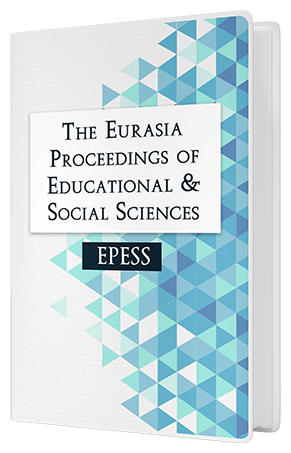Determining the Problems Experienced by Undergraduate Students in Digital Courses in the Distance Education Process
DOI:
https://doi.org/10.55549/epess.1179341Keywords:
Distance education, Education, Science education, Undergraduate studentAbstract
In today’s developing and changing world educational activities which are an important factor in our social life like many human activities, have switched to the distance learning model when face-to-face teaching is not appropriate. Distance education is an interdisciplinary field that tries to eliminate the limitations between learning, teaching, and learning resources, and use existing technology with a pragmatist approach to achieve this. With the distance education carried out during the Covid-19 period, students had to attend classes from their own homes or in other venues that allow participation in the lesson. Although distance education removes the restriction of space and allows the lessons to be watched again, in addition to these advantages, distance education has also brought some problems. The inability of every teacher to use technology with the same efficiency, the teachers’ inability to convey the content to students, the inability to understand the formulas in numerical lessons, the inability to solve enough problems to reinforce the subject, the inability to carry out experiments in a real laboratory environment, the inability to prepare exams in a classroom environment are examples of these problems (Kiremit et al., 2021). This study will try to determine problems experienced by undergraduate students in digital courses during the distance education process. For this purpose, the study group consisted of undergraduate students studying the department of science teaching, who learned numerical courses such as mathematics, chemistry, and physics through distance education for about four semesters. The data were obtained with the Distance Education Scale developed by Kiremit et al. (2021). The analysis of data was analyzed with the help of the SPSS 18 package program.Downloads
Published
Issue
Section
License
Copyright (c) 2022 The Eurasia Proceedings of Educational and Social Sciences

This work is licensed under a Creative Commons Attribution-NonCommercial-ShareAlike 4.0 International License.
The articles may be used for research, teaching, and private study purposes. Any substantial or systematic reproduction, redistribution, reselling, loan, sub-licensing, systematic supply, or distribution in any form to anyone is expressly forbidden. Authors alone are responsible for the contents of their articles. The journal owns the copyright of the articles. The publisher shall not be liable for any loss, actions, claims, proceedings, demand, or costs or damages whatsoever or howsoever caused arising directly or indirectly in connection with or arising out of the use of the research material. All authors are requested to disclose any actual or potential conflict of interest including any financial, personal or other relationships with other people or organizations regarding the submitted work.




